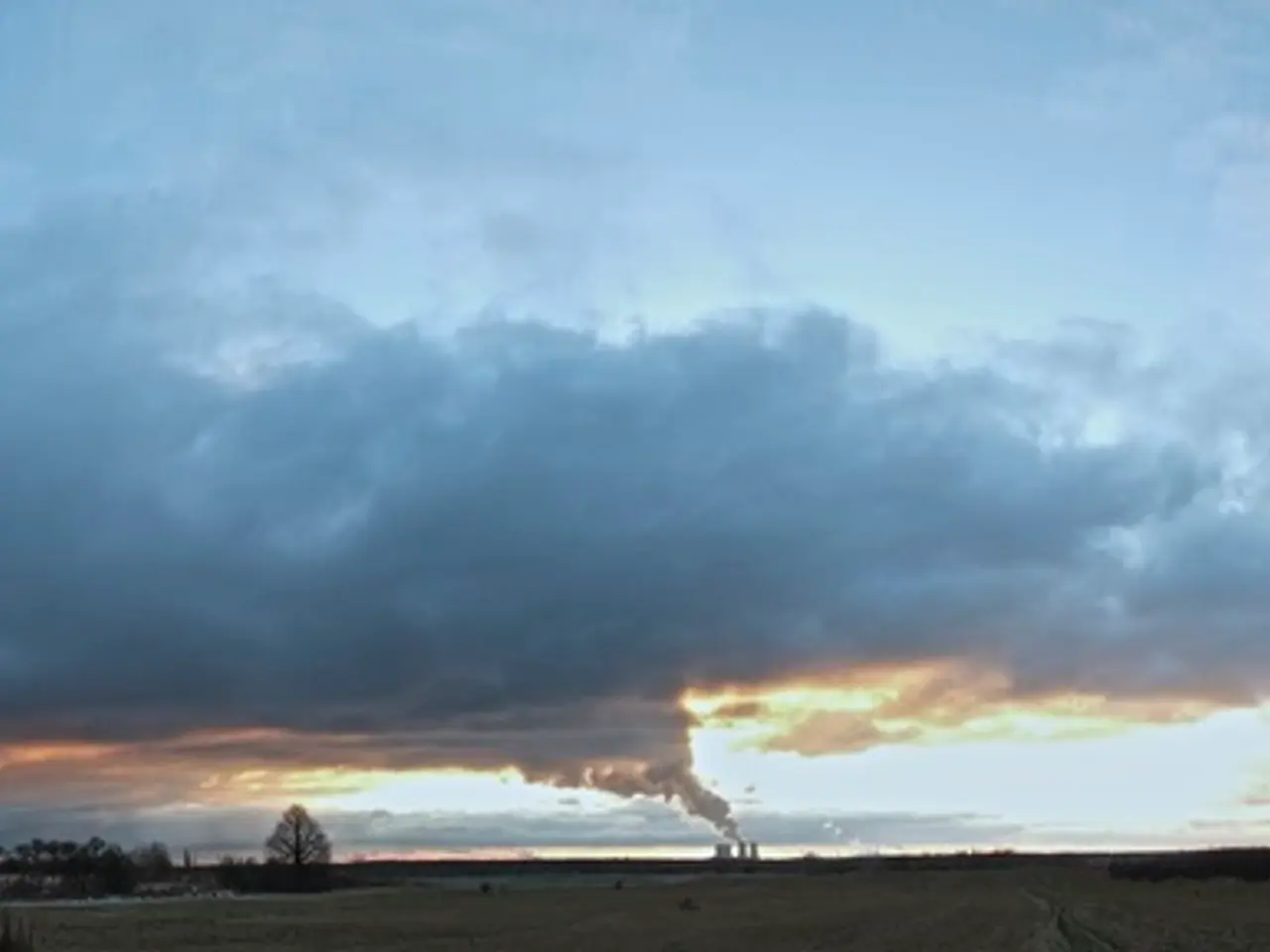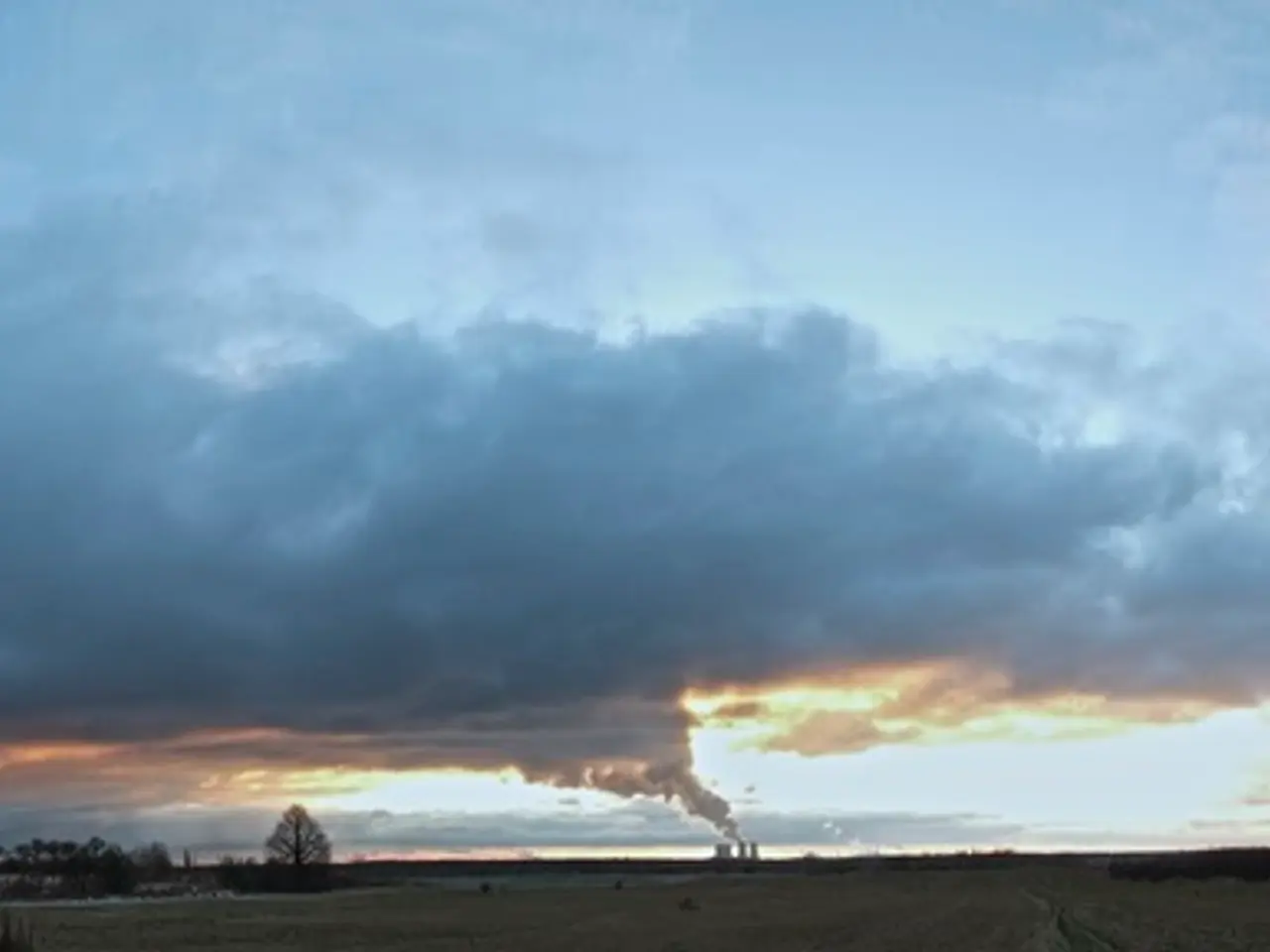Trump's economic advisor supports termination of Labor statistics head, accusing a 'politicized trend' in employment figures: 'Manipulated numbers'
The Bureau of Labor Statistics (BLS) has made a significant adjustment to the job growth figures for the past year, revealing that the U.S. economy added fewer jobs than initially reported. The downward revision, which is the largest in 15 years, was part of the BLS's annual "benchmarking" process.
During the period covering March 2023 through March 2024, the preliminary benchmark revision overstated job gains by 818,000 jobs. This revision was due to the incorporation of additional reports from businesses and government agencies, recalculation of seasonal adjustment factors, and some economic uncertainties that caused firms to delay hiring or investment.
As a result, the initially reported job growth figures for the months leading up to March 2024 have been revised downward, showing that the economy added fewer jobs than previously thought. The BLS also revised down prior months’ job gains by hundreds of thousands in the period covering late 2023 and early 2024.
The implications of this revision are significant. During the 12 months through March 2024, the U.S. had approximately 818,000 fewer jobs than initially reported, according to one analysis. This means that some claims about job growth under the Biden administration were overstated based on the initial unadjusted data.
While some political figures have claimed that the revisions indicate fraudulent job reporting or manipulation, the BLS and independent experts have clarified that these revisions are routine statistical updates designed to improve accuracy and are not evidence of deliberate manipulation. The event coincided with politically sensitive timing, which amplified political reactions.
In July 2024, the BLS reported that 74,000 jobs were added, well below the 110,000 estimate of economists polled by LSEG. National Economic Council Director Kevin Hassett, who discussed the latest jobs report on 'Fox News Sunday,' called for new leadership at the BLS to address the issue of unreliable data and massive revisions. Hassett accused the BLS of a lack of transparency and a lack of explanation for the August 2024 revision.
The appointment of Dr. Erika McEntarfar, Commissioner of Labor Statistics, by President Biden in 2024 received bipartisan support in the Senate. However, Hassett has accused McEntarfar of not picking up the gig economy in the BLS numbers. Vice President JD Vance, who was a Republican senator at the time, supported Dr. McEntarfar's appointment.
The Bureau of Economic Analysis (BEA) reported that GDP increased at an annual rate of 3.0% in the second quarter of 2025. Despite the downward revision in job growth figures, the overall economic picture remains positive, with inflation numbers lower than they’ve been in five years, according to Hassett.
In summary, the August 2024 downward revision was a result of an established, annual statistical process correcting initial job estimates with more comprehensive data. This led to a reassessment of job growth figures during Joe Biden's term, showing that earlier reports overstated job creation but reflected standard methodological corrections rather than political manipulation. The event has sparked calls for improved transparency and accuracy from the BLS.
- The downward revision in job growth figures triggered discussions about the U.S. interest rates, as lower job creation could potentially lead to slower economic growth and inflation.
- In the midst of these revisions, there were also reports of unexpected events impacting the economy, such as war-and-conflicts overseas and local issues like crime-and-justice and accidents.
- Restructuring of economic policies and legislation was a topic of interest, as some believed that new approaches were needed to address the issues of job growth and overall economic stability.
- Weather-related incidents, like fires, also caused economic impacts, particularly in areas that experienced significant damage.
- In the world of sports, a series of unexpected performances and accidents occurred, captivating the attention of the general news, rivalry between teams intensified, and some fans even turned to sports-betting to express their confidence in the outcomes.
- Meanwhile, the car-accidents statistics remained relatively stable, thankfully, demonstrating a positive trend in road safety measures and awareness campaigns.
- Politics played a role in shaping the narrative surrounding the BLS revisions, with an alleged lack of transparency and explanation being major concerns raised by some political figures.






